Brother Of Detained Iranian Protester Honors Memory Of Navid Afkari

Habib Afkari, a former detainee and the brother of Navid Afkari, has penned a heartfelt open letter on the third anniversary of his brother Vahid's imprisonment.

Habib Afkari, a former detainee and the brother of Navid Afkari, has penned a heartfelt open letter on the third anniversary of his brother Vahid's imprisonment.
Vahid Afkari, who continues to be incarcerated in solitary confinement, stands as a symbol of resilience in the face of injustice and remains an enduring source of inspiration for many across Iran.
Navid Afkari, a talented wrestler, was apprehended in August 2018 amid widespread protests against escalating prices and economic hardships in Shiraz. Tragically, he was executed on September 12, 2020, following a trial marred by inconsistencies and irregularities.
In a poignant letter addressed to his brother Vahid, Habib Afkari wrote "Every day you endure in solitary confinement, bearing the weight of suffering and pain, you understand that you are paving the path towards a brighter future for our nation. You are the one forgotten and abandoned in that dim cell, yet you steadfastly cling to your faith, believing that your unwavering resolve will hasten the day of freedom."
Vahid Afkari has been sentenced to 33 years and 9 months in prison, accompanied by 74 lashes, following a controversial trial. He has endured three years of solitary confinement.
Afkari’s sister, Elham, who was also arrested by Shiraz's intelligence office in November 2021, regained her freedom several months later after receiving a five-year suspended sentence.
The latest audio recording released by Navid Afkari has prominently featured a phrase that has resonated widely over the past three years: "They search for the neck for their noose."
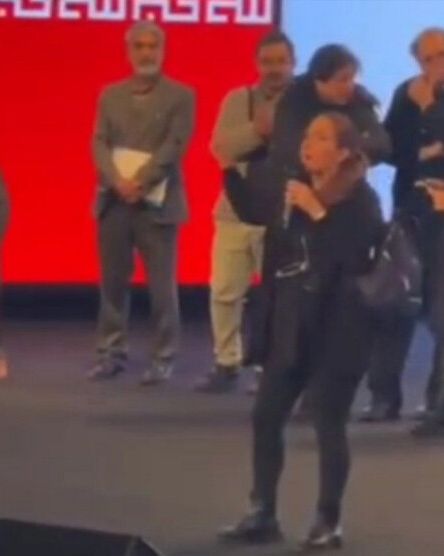
Zeynab Kazempour, an engineer who made headlines for removing her compulsory hijab during a meeting in February, has been sentenced to 74 lashes.
The verdict comes in response to charges of "causing harm to public modesty" brought against her, though the verdict has been suspended for five years, likely in a bid to keep the situation calm amidst rising angst as the country nears the one year anniversary of the death of Mahsa Amini in morality police custody.
It is believed Kazempour appeared in court on August 28 to face the charges. Following the suspension, the court stipulated that should she commit any similar "crimes" during this period, she will not only receive lashes but also face punishment for her subsequent “misconduct”.
The incident that led to Kazempour's trial occurred during the annual assembly of the Tehran Construction Engineering Organization. She had been barred from running as a candidate for the board because of her not wearing her hijab correctly. In response, Kazempour removed her headscarf completely and took to the stage, making a brief statement asserting, "I don't recognize the assembly that doesn't allow candidates to run because they don't wear a headscarf." Her actions were met with applause from many of the participants and her story of defiance became one of the many which has made headlines since September's uprising.
Kazempour is one of thousands of women who have cast off their headscarves in the wake of Amini's death, the young Kurdish-Iranian arrested for not wearing her hijab properly and subsequently fatally beaten in police custody. Women have been seen burning headscarves in the streets leading to a harsh response from the regime including increased surveillance and bans on entry to public places for those flouting the law.
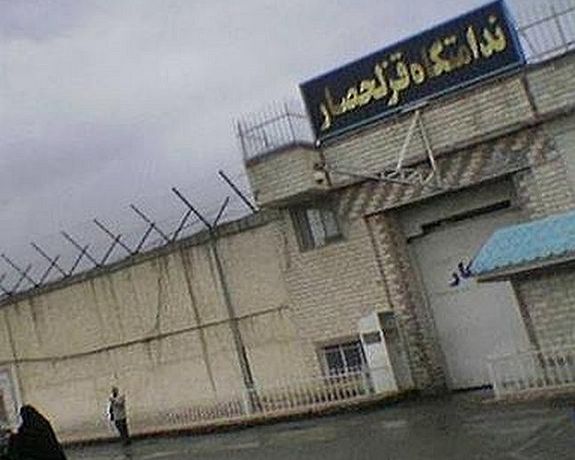
Thirteen political prisoners forcibly relocated to Ghezel-Hesar prison near Tehran, have embarked on a hunger strike.
The US-based Human Rights Activists News Agency (HRANA) cited a statement from one of the prisoners' relatives, revealing that the detainees are currently housed in a 12-square-meter cell within the prison's quarantine section. This area is typically reserved for pre-execution detainees, and the cramped conditions have raised concerns about their well-being.
Moreover, the Coordination Council of Iranian Teachers' Trade Associations has raised alarm about the security situation in the prison, noting that the hunger-striking prisoners are being held in a section intended for disciplinary inmates, where security measures are inadequate.
According to the report, Ghezel-Hesar prison lacks essential amenities such as drinking water, hot water for bathing, cooking facilities, and a canteen. Detainees who have been exiled to this facility also face deprivation in standard services, including regular phone access, access to blankets, medical care, and sanitary facilities.
The Coordination Council highlighted that the transfer of these prisoners from Evin Prison to Ghezel-Hesar occurred abruptly and without prior notice, detainees subjected to violence, threats, humiliation, handcuffing, and shackling.
The Coordination Council of Iranian Teachers' Trade Associations has reiterated the primary demand of these exiled prisoners, which is an immediate return to Evin Prison and the cessation of any ongoing security proceedings against them. They have vowed to continue their hunger strike until these demands are met.

The upcoming week will pose some serious questions to the Biden Administration as moves to examine its failings in dealing with one of the most malign regimes continue.
The US House of Representatives is also expected to put the final stamp on the bipartisan Mahsa Amini Human Rights and Security Accountability (MAHSA) Act after it was submitted in June, seeking more sanctions on Iran’s leadership.
Named after Kurdish-Iranian Mahsa Amini, whose death in morality police custody in September 2022 led to the boldest revolt against the clerical regime since its establishment in 1979, the Act won unanimous approval at the US House of Representatives Foreign Affairs Committee in April, before Senators Marco Rubio (R-FL) and Alex Padilla (D-CA) introduced the bipartisan legislation to the Senate in June.
Essentially similar and a companion to the one passed in the House committee, the MAHSA Act will potentially commit the administration to report to Congress within 90 days of the date of the enactment and periodically thereafter, making determinations about whether certain existing sanctions apply to specific people and impose the applicable sanctions.

The bipartisan bicameral move requires the executive branch to impose applicable sanctions on Ali Khamenei, his office and his appointees, as well as President Ebrahim Raisi and his cabinet officials, foundations and other entities affiliated with the Supreme Leader under section 105(c) of the Comprehensive Iran Sanctions, Accountability, and Divestment Act of 2010, section 7031 (c) of the Department of State, Foreign Operations, and Related Programs Appropriations Act, 2021, and Executive Orders 13876, 13553, 13224, and 13818.
“The Supreme Leader is an institution of the Islamic Republic of Iran … that holds ultimate authority over Iran’s judiciary and security apparatus, including the Ministry of Intelligence and Security, law enforcement forces under the Interior Ministry, the Islamic Revolutionary Guard Corps (IRGC), and the Basij, a nationwide volunteer paramilitary group, subordinate to the IRGC, all of which have engaged in human rights abuses in Iran,” reads a paragraph of the MAHSA Act.
It follows moves earlier this year when Democratic and Republican leaders on the House Foreign Affairs Committee introduced a bill to target Iran’s production and exports of missiles and drones, with an eye toward the soon-to-expire United Nations restrictions on Iran’s missile program.
The Fight and Combat Rampant Iranian Missile Exports (Fight CRIME) Act levies additional sanctions on Iran and asks the administration to outline a strategy to prevent the UN restrictions from expiring.
Demands for harsher actions against the regime continue to blight the administration which has been dogged by allegations of its being too soft as it tightropes between negotiating to revive the JCPOA nuclear deal while Iran continues to forge ahead with acts against the US in the likes of Syria and Iraq. Since the Biden administration came to power, over 80 attacks have been made on US facilities and personnel overseas by Iran, with just five retaliatory attacks from the US.
On top of this, is the controversy surrounding suspended US envoy to Iran, Robert Malley, who is under investigation for alleged leaking of confidential information to Iran.
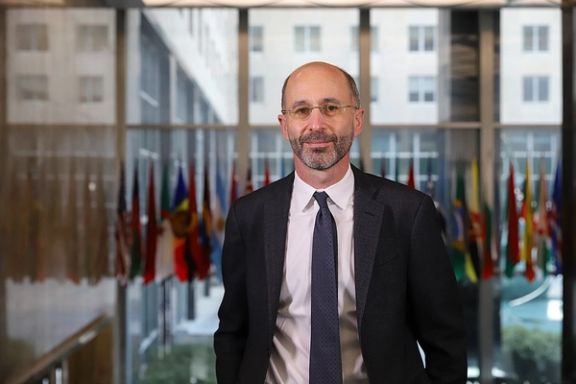
Just this week, FBI Director Christopher Wray highlighted what the FBI sees as some of the leading foreign and domestic threats to the United States in an hour long program at Washington, D.C.'s International Spy Museum.
Among those mentioned was the Iranian plot to assassinate former National Security Adviser John Bolton in 2021 in retaliation for the US drone strike that killed Iranian commander Qasem Soleimani. Bolton is one of a list of targets from the Trump administration with threats to their life from the regime. Wray also brought up a cyber attack by Tehran on Boston's Children's Hospital last year and its covert influence campaign on the 2020 US presidential election.
"That's all on top of constantly trying to evade international sanctions and being the world's leading state sponsor of terrorism," Wray said, "So if that's not enough to convince people that this is a serious threat, I don't know what is."
Former US representative to Iran, Elliott Abrams, this week called on a total travel ban for Iranian citizens going to Iran for the high risk of kidnapping, following the $6 billion deal exchanging five US citizens for freeing up frozen funds in South Korea. It is an issue which has created huge divisions in Washington and allegations that the Biden administration has opened the door for yet further hostage diplomacy.
Next Wednesday, the House Committee on Oversight and Accountability is holding a hearing on Iran titled "A Dangerous Strategy: Examining the Biden Administration’s Failures on Iran”.
Gabriel Noronha, former US representative to Iran said it was a much needed step. “Next week's hearing on Iran is only the second during the Biden Administration and the first in 15 months. This despite Iran's nuclear program advancing, ~10 Americans living under assassination threat, failed negotiations, and the US envoy for Iran under security investigation.”
He said while Congress' attention is justly focused on China as the paramount threat to the United States, on Russia given its war against Ukraine, and on the withdrawal from Afghanistan, “it has taken its eye off the ball when it comes to Iran”, which he claims is now the US’ “number two threat”.
Jason Brodsky, Policy Director from United Against A Nuclear Iran welcomed the initiatives saying, "we're making progress. After the House had not held even one Iran-focused hearing since 2020, there are now two in one week next week".
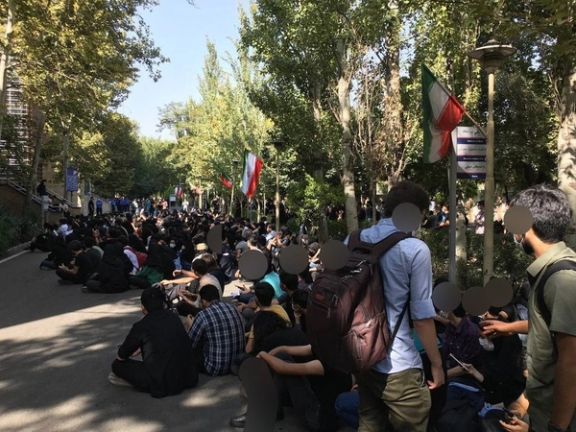
An Iranian academic has argued that purging university professors and other similar measures will not calm the country’s volatile situation and can even backfire.
Bijan Abdolkarimi, a philosopher and academic who upholds an ontological world view rather than the Iranian regime’s Islamic ideology, made the comments in an interview published by the reformist Etemad daily Tuesday. At the same time, perhaps trying to protect himself, he denied being an opponent of the regime.
“The revolt of the [religious] masses and hardliners against the elite is one of the serious dangers to the Iranian Revolution,” he said in the interview that mainly focused on the recent purge of the academia and the announcements of several die-hard regime eulogist (maddah) having been invited to teach in universities.
The recent purge which some have dubbed as “homogenization” of the academia, limitations imposed on students, persecution of journalists and the parliament’s attempt to destroy independence of the country’s bar association, are examples of the campaign against the elite, he added. Persons and groups who “do not belong to the elite in any way” are seeking to find their way into the academia with the government’s help, he said.

Saeed Haddadian, one of the three maddahs who has gained a tutorial seat at Tehran University’s Literature and Humanities Faculty will be teaching “Analysing Resistance Verse”.
Resistance verse refers to poetry written about the Islamic Revolution and the eight-year-war with Iraq in 1980s.
The role of maddahs in Shiite mourning ceremonies is reciting the praises of the prophet and his companions and mourning the slaying of his grandson, Imam Hussein in the battle of Karbala, which in reality was a struggle over power in the nascent Islamic empire in the seventh century.
In the past, most maddahs had very low education or were even illiterate but in recent years some have gained university degrees, mainly in religion-related or humanities fields with the establishment’s support.
The 58-year-old Haddadian holds a PhD in Quran and Hadith and has previously been a tutor of subjects such as Islamic Revolution and Quran Interpretation at the same university. He is one of the maddahs who is often invited by Supreme Leader Ali Khamenei to perform at his own religious ceremonies on special occasions.
During his three-decade rule Khamenei has hugely encouraged the growth of the maddah establishment against the seminary-educated clerics. Less educated or even illiterate maddahs whose role was singing mourning songs in graveyards at funerals or during religious mourning occasions for a small fee have now attained high status and political influence. The majority are aligned with hardliners.
“These methods [Islamification of the academia] will not calm the country’s fueled circumstances but will rather make it worse,” Abdolkarimi said while pointing out that there is a massive class gap in the Iranian society where the middle class as “the engine of development” is excluded from involvement in decision-making by the state controlled by the hardliners.
The purge of academia, which is now being referred to by some pundits as ‘the second cultural revolution’, has shaken many Iranians who are already grappling with various pressures. The purge comes amid loss of hope in improvement of the country’s circumstances, including its economy, better relations with the international community and removal of sanctions, as well as even relative social and political freedom.
It appears from social media posts that loss of hope has even affected some religiously people who formerly supported the establishment for ideological reasons. Financial corruption and same-sex video scandals involving regime officials could have been the last blow to those whose world-view is centered around Sharia laws and had so far put up with economic pressures for “the greater good” of the society.
Among those who have lost hope, particularly the younger generation from all walks of life, emigration seems the only option for a better life. A recent poll by the US-based Statis Consulting found that almost half of Iranian youth want to leave the country amid pessimism about their future.
“All around me there are people who are emigrating, who never wished or liked to leave. I wish you [the Islamic Republic] were gone and all of these people stayed,” an anonymous person wrote in a post.
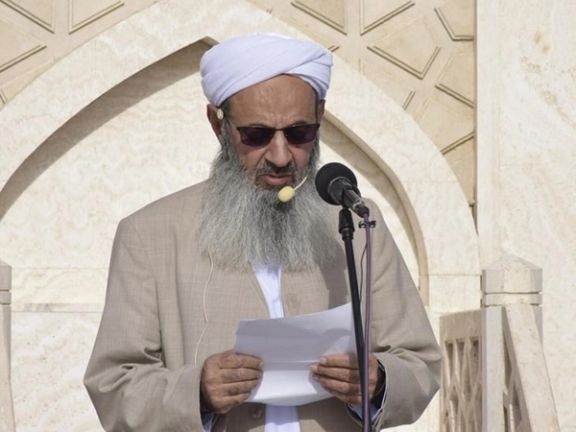
Mowlavi Abdolhamid, the Sunni Friday prayer leader in Zahedan, has expressed deep concern over the recent deaths of prisoners, including that of Javad Rouhi.
Speaking on Wednesday, Abdolhamid stated, "The sudden deaths of certain detainees, both during their incarceration and after their release, have left a profoundly negative impression on the international stage, exacerbating pessimism."
Rouhi, a prominent figure in the Woman, Life, Freedom movement, is the latest activist to have passed away in prison last week, purportedly due to a "seizure," as claimed by Iranian judicial authorities, his death echoing the tragic circumstances which led to the death of Iranian-Kurd, Mahsa Amini, in morality police custody. Her death subsequently triggered a year of uprising against the regime.
Rouhi had become one of the most prominent faces of the recent Woman, Life, Freedom movement, and had been held at the northern Nowshahr prison and initially sentenced to death, a sentence later overturned by the Supreme Court, pending re-sentencing.
Amnesty International previously documented extensive instances of severe physical and psychological abuse during the young man's detention. His death has sparked outrage among Iranians demanding action, while international human rights organizations are urging a comprehensive investigation into the circumstances surrounding his death.
Calls for a United Nations investigation and international accountability measures against the Islamic Republic regime are growing louder among human rights organizations, while activists are rallying for a declaration of public mourning and nationwide protests in Rouhi's memory.






